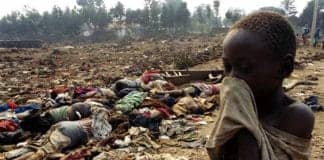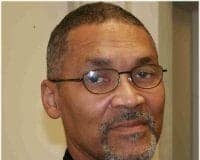Tags 1994 Rwandan Genocide
Tag: 1994 Rwandan Genocide
Commemorating the Rwandan Genocide: A Senate resolution in praise of blood
“Kagame did not stop the genocide, because at the same time that ethnic Tutsis were being killed in Hutu-controlled zones, his Tutsi troops were killing with equal zeal and organization. And in every zone that Kagame’s army entered and controlled, they killed Hutus massively.” - Judi Rever
Rwanda blocks legal counsel to political prisoner Victoire Ingabire with Kafkaesque...
On May 19, 2016, the Rwandan government ordered Dutch lawyer Caroline Buisman to leave Rwanda immediately, without even meeting her new client, political prisoner Victoire Ingabire Umuhoza. Buisman had arrived in the country’s capital Kigali on May 14, 2016, to consult with Ingabire regarding the appeal of her conviction for terrorism, inciting popular revolt and minimizing the 1994 Rwandan Genocide.
Rwanda Day: Black faces of empire
The City of Atlanta hosted the fourth international Rwanda Day on September 20, 2014. Rwanda Day celebrations were held in Chicago in 2011, Boston and London in 2012, and Toronto in 2013. Rwandan and Congolese exiles and refugees have appeared to protest each time, as they did again in Atlanta. Bruce Dixon, Atlanta resident and managing editor of the Black Agenda Report, attended the protest.
Peacekeepers depend on the Pentagon, in South Sudan, CAR, DRC, Uganda,...
The Central African Republic, Democratic Republic of the Congo and South Sudan all share borders. Each of these three countries is now engulfed in tribal or religious sectarian violence, and Uganda, a longtime U.S. military partner, has troops in both the Central African Republic and South Sudan. U.S. Special Forces have been on the ground with Ugandan troops in both countries since 2011.
Rwanda is no excuse for the U.S. to intervene in Sudan
Advocates of intervention in Southern Sudan argue that the U.S. can’t be bystanders to what could become another Rwanda and must become instead “upstanders” preventing genocide. Was the U.S. a bystander to the Rwanda Genocide? Professors Peter Erlinder and Edward Herman both say no.

 Store
Store





